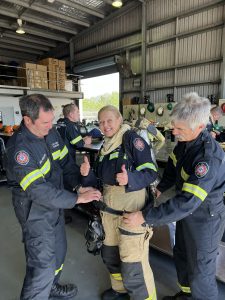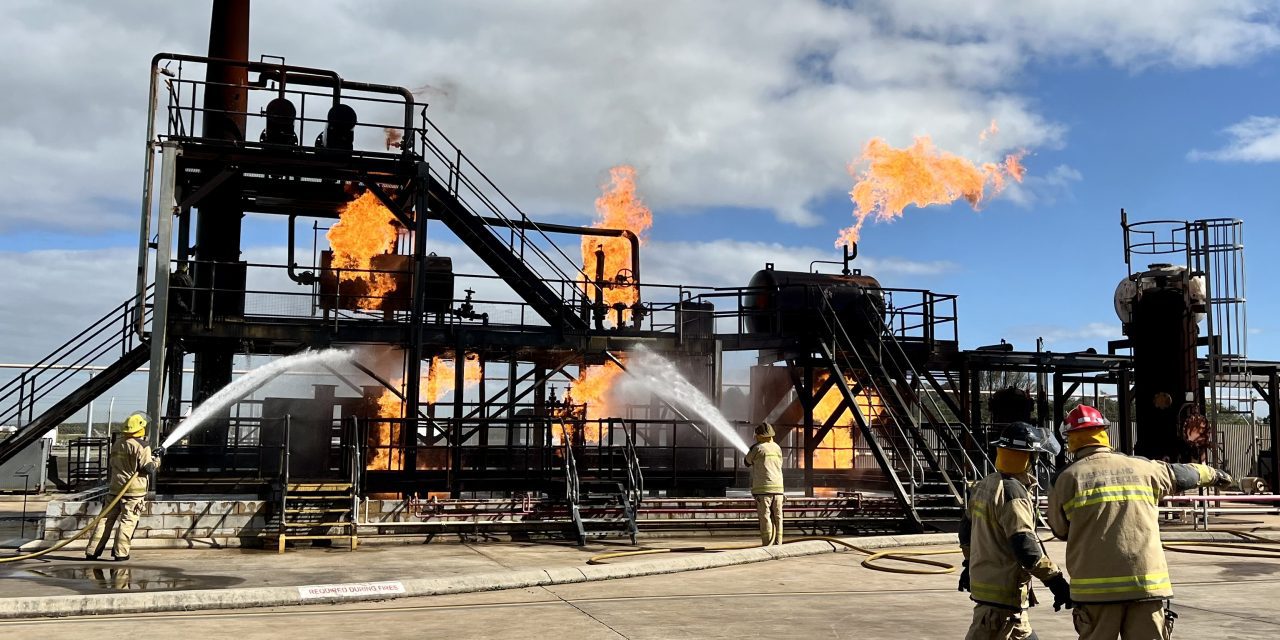Our frontline personnel are vitally important, in everyday incidents, and also during major disasters. Advocacy is important to ensure they have the resources and training needed to perform at their very best, to help keep us safe. As an area greatly impacted by major bushfires in recent years, the importance of having a fully resourced and trained local fire service was very much highlighted. Sandy recently was privileged to experience some live fire training herself as part greater understanding of the high level of competency, as well fitness, required!

Further, during Queensland’s Budget Estimate Hearings this week, the following response from the Minister for Fire and Emergency Services regarding improvements being funded for rural and volunteer firefighter training, as well for non-voluntary staff, was welcomed after our advocacy for expanded training resources.
I am advised by Queensland Fire and Emergency Services that the uplift provided to the Rural Fire Service, as a result of the $578 million reform package, will have a significant positive impact on the access that Rural Fire Service volunteers and staff have to training and frontline support.
In fact, the clear focus of the uplift of 114 full-time equivalent for the Rural Fire Service, will be to directly support volunteers on the front line.
For example, I am advised that there will be additional dedicated specialist training personnel deployed to every region.
This is in addition to the work already underway on the design, development and delivery of the Rural Fire Development Framework which is a revised training structure, linking the training undertaken by our volunteers directly to the roles that they do.
By aligning training courses to Rural Fire Service roles, volunteers can develop and maintain the skills they need to succeed in their duties and continue supporting Queensland communities.
I am advised that to date, the first two phases of the Rural Fire Development Framework have been delivered to the Regions and there is an ongoing commitment of funding and support to increase the delivery of train the trainer workshops.
In 2023-24, the Crew Leader Program and Certificate Ill Pathway for Frontline Volunteers and Staff will be released. This training will improve delivery and provision of brigade response to bushfire and other local events.
In addition, a number of product improvements in existing course content is underway to incorporate flexible learning initiatives such as podcasts, micro learning and eLearning components. These improvements have led to a more engaged learner cohort.
I am advised that in 2023-24, QFES will further improve the risk-specific training design and development such as remote and isolated structural response to identified areas based on local need and risk profile.
Additionally in 2023-24, QFES is designing and developing a capability enhancing staff development framework model that will deliver technical skills, non-technical skills and leadership skills required to lead the Rural Fire Service into its new established functions under the future Queensland Fire Department.
For anyone wishing to enquire about becoming a firefighter, whether volunteer or otherwise, please visit www.qfes.qld.gov.au/join-our-team
Further information
Further direct advocacy regarding this or any other matters related to our Fire Fighters can be directed to the QLD Minster for Fire and Emergency Services via police@ministerial.qld.gov.au and please cc’ our office in via noosa@parliament.qld.gov.au, as well forward any response you receive to us.

